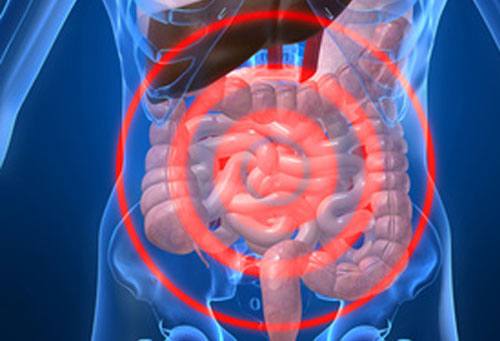Feingold syndrome 1 is a rare, genetic congenital malformation syndrome characterized by microcephaly, and numerous digital anomalies. People with Feingold syndrome 1 are frequently born with a blockage in part of their digestive system called gastrointestinal atresia. A new study using CRISPR genome editing in zebrafish helped to reveal a decrease in protein synthesis in cells of the developing gut contributes to Feingold syndrome 1.
The findings, “Mycn regulates intestinal development through ribosomal biogenesis in a zebrafish model of Feingold syndrome 1,” are published in PLoS Biology and led by Yun-Fei Li of Zhejiang University School of Medicine in Hangzhou, China, and colleagues.
“Feingold syndrome type 1, caused by loss-of-function of MYCN, is characterized by varied phenotypes including esophageal and duodenal atresia,” wrote the researchers. “However, no adequate model exists for studying the syndrome’s pathological or molecular mechanisms, nor is there a treatment strategy. Here, we developed a zebrafish Feingold syndrome type 1 model with nonfunctional mycn, which had severe intestinal atresia.”
The disorder is caused by loss-of-function mutations in the gene Mycn. However, there has been no animal model to study the effects of that loss.
The research created a model by using CRISPR genome editing to delete a portion of the Mycn gene in zebrafish, whose gut development shares important similarities with that of humans.
They observed the resulting loss of gene activity led to a dramatic reduction in the size of the intestine, both in length and in the folding that gives the intestine its enormous surface area for absorption. Within a particularly affected subgroup of cells in the developing intestine, they found a significant down-regulation of numerous ribosomal genes, leading to reduced gene translation and protein synthesis.
“Our work shows that during embryonic development, intestinal cells, which are in a highly proliferative state, require high Mycn expression levels,” the corresponding authors, Peng-Fei Xu and Xi Jin, say, “and that the proliferation arrest caused by reduced protein synthesis was the main reason for the developmental defects in the intestines of the Mycn mutant. This suggests a possible treatment strategy for the intestinal symptoms in patients with Feingold syndrome type 1, although confirmation in a human intestinal organoid system is essential.”







